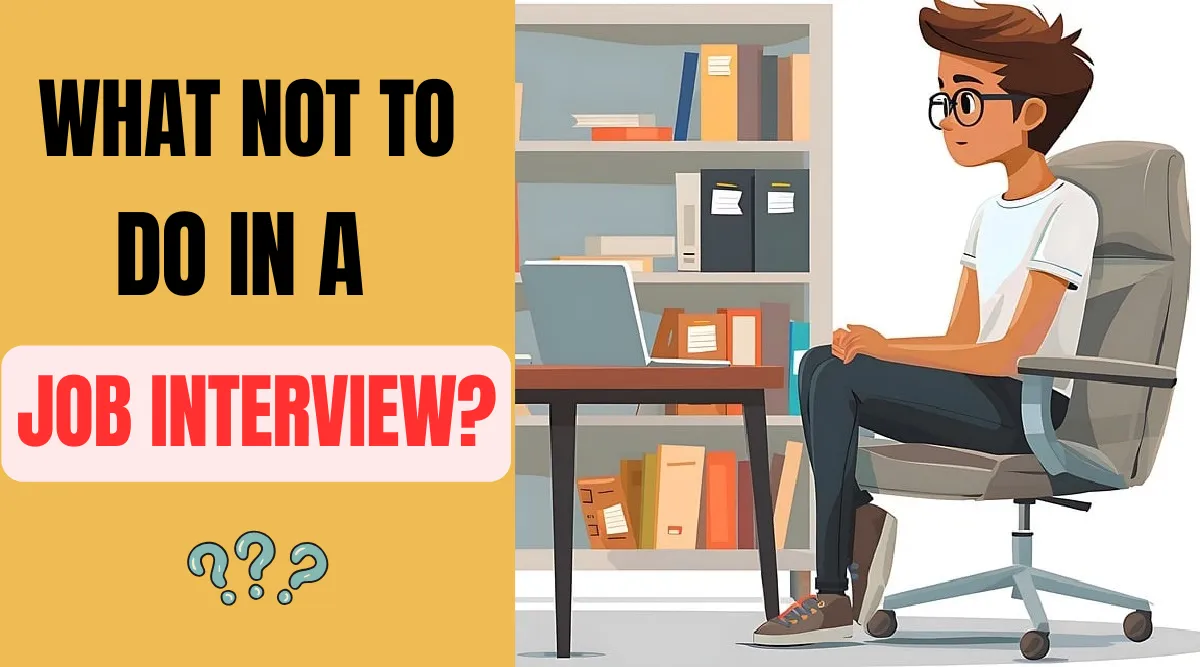Career
7 Reasons How Work Experience Can Help You to Get Employed?

In this article, we will explore how work experience plays a crucial role in helping you find job opportunities in the UK.
Searching for a job in the United Kingdom can be a challenging and competitive process. In today’s job market, employers are looking for candidates who not only possess the required qualifications but also have relevant work experience.
Work experience is a critical asset when it comes to finding job opportunities in the United Kingdom. It provides you with a competitive edge, industry knowledge, networking opportunities, soft skills, an enhanced CV, and the confidence you need to succeed.
Whether you are a recent graduate, an expatriate, or someone looking to change careers, accumulating relevant work experience can significantly improve your job prospects in the UK. So, don’t underestimate the power of practical experience – it might be the key to unlocking your dream job in the UK job market.
Benefits of Work Experience?
Work experience plays a crucial role in shaping an individual’s professional journey. It provides valuable opportunities to learn, grow, and develop essential skills that are vital in today’s competitive job market. Whether it’s an internship, a part-time job, or a full-time position, each work experience offers unique insights and benefits.
Firstly, work experience allows individuals to gain practical knowledge and apply what they have learned in real-world settings. It helps bridge the gap between theory and practice, enabling individuals to understand how concepts and skills are implemented in the workplace. This hands-on experience not only enhances their technical abilities but also fosters critical thinking, problem-solving, and decision-making skills.
Secondly, work experience provides an opportunity to build a professional network. Interacting with colleagues, supervisors, and clients allows individuals to establish valuable connections within their industry. These connections can be beneficial for future job prospects, mentorship opportunities, and even potential partnerships. Networking plays an integral role in career advancement, as it opens doors to new opportunities and facilitates personal growth.
| Also Read: 7 Jobs that are Perfect for Older Adults |
Lastly, work experience enhances one’s confidence and self-belief. Through successfully completing tasks and facing workplace challenges, individuals develop a sense of accomplishment and self-assurance in their abilities. This newfound confidence not only helps in current roles but also prepares individuals for future career endeavors, enabling them to tackle new challenges with resilience and determination.
When should you consider gaining work experience?
Work experience holds significant value for getting into any career. It possesses the ability to stand out from the crowd in applications for job opportunities.
Work experience is a valuable asset, regardless of your age or career stage. It serves as a tool for skill development and helps you make informed decisions if you find yourself in the following situations:
| Seeking your very first job |
| Career change |
| Whether you’re currently out of work |
Courses That Offer Work Experience:
- T Levels and Traineeships: These programs invariably incorporate work experience as an integral component of your learning journey.
- Vocational Technical Qualifications (VTQs): Some VTQs also offer the chance to gain work experience as part of your coursework.
- Degree Courses: In certain cases, degree programs may offer work experience as part of the curriculum.
The nature of work experience can vary; it could involve dedicating one day a week over several months or immersing yourself full-time for a few weeks. In some instances, you may have a placement officer or tutor who can assist you in securing work experience opportunities throughout your course.

7 Reasons Why Work Experience is Important:
1 # A Competitive Advantage:
Having relevant work experience can give you a competitive edge in the job market. It demonstrates to potential employers that you not only have theoretical knowledge but also practical skills that can be immediately applied to their organization. In the UK, many employers prioritize candidates with work experience because they are seen as less of a risk compared to those with no practical exposure.
2 # Industry Knowledge:
Work experience allows you to gain in-depth knowledge of your chosen industry. It exposes you to the latest trends, technologies, and best practices. This industry-specific knowledge makes you a more attractive candidate and helps you stand out from other job seekers. Employers value candidates who are already familiar with the ins and outs of their field.
3 # Networking Opportunities:
During your work experience, you’ll have the chance to build a network of professional contacts. These connections can be invaluable when it comes to finding job opportunities. In the UK, many job openings are not publicly advertised but are filled through referrals and recommendations. Building a strong professional network can open doors to unadvertised positions and increase your chances of finding a job.
4 # Soft Skills Development:
Work experience is not just about technical skills; it also helps you develop crucial soft skills. These include communication, teamwork, time management, problem-solving, and adaptability. Employers in the UK highly value these skills as they contribute to a positive and productive workplace. The ability to work effectively with others and handle various challenges is often as important as specific job-related skills.
5 # CV Enhancement:
A well-documented work history on your CV (curriculum vitae) can significantly enhance your employability. Employers in the UK often scrutinize CVs carefully, and a strong work experience section can make your application stand out. Be sure to detail your responsibilities, accomplishments, and the skills you gained during each position, as this information helps employers understand how you can contribute to their organization.
6 # Increased Confidence:
Work experience not only equips you with the skills and knowledge necessary for a job but also boosts your confidence. When you have practical experience, you feel more self-assured during interviews and in the workplace. This confidence can be a game-changer in securing a job and thriving in your career.
7 # Adaptation to the UK Job Market:
Understanding the dynamics of the UK job market is vital. Work experience within the UK job market helps you become familiar with its unique demands, expectations, and work culture. It also provides you with a better understanding of your industry’s specific requirements within the UK context.
| Also Read: 11 Things Rich People Do That The Poor Don’t |
How to get work experience?
There are various options to get work experience, such as:
1. Volunteering: Volunteering can provide you with practical skills and exposure to different work environments.
2. Part-Time Employment: Taking on a part-time job allows you to gain hands-on experience in your field of interest while earning income.
3. Attending Company Events: Participation in face-to-face or virtual company events and open days can offer insights into the industry and networking opportunities.
4. Supporting Friends or Family: Assisting friends or family members with their businesses can be an informal yet enriching way to gain experience.
5. Entrepreneurship: Launching your own small business allows you to develop a wide range of skills and entrepreneurial experience.
6. Competitions and Skill Challenges: Participating in competitions and skill challenges like World Skills can help you hone your abilities and gain recognition in your chosen field.
Learning from work experience:
- What activities did you enjoy?
- Which activities did you excel at?
- What was simple for you to understand?
- Which activities were you not fond of?
- Have you met anyone whose occupation you’d like to take on?
- Have you recognized any of your strengths?
- What knowledge about employer expectations did you gain?
- What kind of training would you require?
- Would you prefer to work for that employer, in the same sector, or in a similar role? Why?
How can you get started?
- Create a resume and cover letter to send to potential employers.
- Start researching local organizations that that interest you, then get in touch with them.
- Prepare a pitch explaining why they should hire you.
- Consider how you can apply your transferrable abilities in the workplace.
Important Website:

Career
The Advantages of Hiring BAME Candidates
Are you looking to diversify your workforce? Have you considered hiring Black, Asian and Minority Ethnic (BAME) candidates? Hiring a diverse workforce can bring a range of benefits to your organisation. Today, we are going to discuss the advantages of hiring BAME candidates and how it can positively impact your company.
Research has shown that diverse teams are more innovative and creative. When individuals with different backgrounds and perspectives come together, they can bring new ideas and solutions to the table. This can lead to increased productivity and better decision-making. Additionally, having a diverse workforce can help your company better understand and connect with a wider range of customers and clients.
Furthermore, hiring BAME candidates can also help to improve your company’s reputation. By demonstrating a commitment to diversity and inclusion, you can attract a wider pool of talent and customers who value these principles. Additionally, having a diverse workforce can help to reduce unconscious bias and promote a more inclusive culture within your organisation. Overall, hiring BAME candidates can bring a range of benefits to your company and help to create a more equitable and inclusive workplace.
According to Business In The Community (BITC):
- 29% of both white and BAME candidates secured jobs when applying directly to an employer.
- 44% of white candidates but only 29% BAME candidates were offered jobs when applying through a recruitment agency.
| Also Read: How to Find Your Perfect Green Job? |

Image: Pixabay
1. Enhanced Creativity and Innovation:
When it comes to driving innovation and creativity, diversity is key. Hiring BAME candidates can bring fresh perspectives and ideas to the table that may not have been considered before.
Diverse Perspectives:
BAME applicants come from a variety of cultures and backgrounds, which can provide a wealth of diverse perspectives. These perspectives can help to challenge the status quo and encourage new ways of thinking. When individuals with different work experience and viewpoint come together, they can collaborate to create innovative solutions that may not have been possible otherwise.
Problem-Solving Skills:
They often have unique problem-solving skills that can benefit the organization. They may have experience overcoming challenges that are different from those faced by other employees, which can bring a new level of creativity to the table. Additionally, they are more adaptable and able to think on their feet, which can be invaluable in fast-paced work environments.
Broader Market Understanding:
They can bring a wealth of benefits to your organisation. One of the most significant advantages is a broader market understanding. By hiring them, you can gain valuable insights into different cultures and communities. This can help you to better understand your customers and improve your business practices.
Cultural Competence:
They can bring a high level of cultural competence to your organisation. They have a unique perspective on the world and can offer valuable insights into different cultures and customs. This can be particularly useful if your company operates in a global market or has customers from diverse backgrounds.
Customer Insights:
BAME candidates can also provide valuable customer insights. They may have a better understanding of the needs and preferences of customers from different backgrounds, which can help you to tailor your products and services to better meet their needs.
By hiring BAME candidates, you can tap into a wider pool of knowledge and expertise. This can help you to develop more effective marketing campaigns, improve customer service, and ultimately increase your bottom line.
In conclusion, hiring BAME candidates can bring a range of benefits to your organisation, including a broader market understanding. By embracing diversity and inclusivity, you can create a more innovative and successful business that is better equipped to meet the needs of a diverse range of customers.
| Also Read: 10 Key Factors for Workplace Success |
2. Improved Company Reputation:
Hiring BAME candidates can help improve your company’s reputation in various ways. Here are some of the benefits you can expect:
Corporate Responsibility:
By hiring BAME candidates, you demonstrate your commitment to diversity and inclusion in the workplace. This can help you build a positive image as a socially responsible company that values and respects people from different backgrounds.
Many job seekers today prefer to work for companies that share their values and beliefs. By creating a diverse and inclusive workplace, you can appeal to a wider pool of candidates and increase your chances of finding the right people for your team.
Brand Loyalty:
Consumers today are more conscious about the social and environmental impact of the companies they do business with. They are more likely to support companies that align with their values and beliefs. By promoting diversity and inclusion, you can build brand loyalty among customers who value these principles.
In fact, a study by Accenture found that 41% of consumers have shifted their business away from a company that they perceived as not being inclusive. By contrast, companies that are seen as inclusive can benefit from increased customer loyalty, positive word-of-mouth, and a stronger brand reputation.
3. Higher Employee Engagement:
When you hire BAME candidates, you increase employee engagement in your workplace. Here are some reasons why:
Inclusivity and Belonging:
You can show the world that you value diversity and inclusivity in your workplace. This creates a sense of belonging among all employees, which leads to higher engagement levels. When employees feel like they are part of a team that values and respects them, they are more likely to be invested in their work and the success of the company.
Retention Rates:
It will also improve your retention rates. When employees feel like they are part of an inclusive workplace, they are more likely to stay with the company long-term. This reduces turnover rates and saves you money on recruiting and training new employees. For more insights on creating a positive work environment, check out our article on How to Improve Your Recruitment Strategy to Hire the Best Talent?
4. Competitive Advantage:
There are several competitive advantages that your business can benefit from. These advantages can help your company stand out from the competition and attract top talent.
Talent Attraction:
One of the main advantages of hiring BAME candidates is that it can help your business attract a more diverse range of talent. By actively seeking out BAME candidates, you are sending a message that your company values diversity and is committed to creating an inclusive workplace.
This can be a powerful message to potential candidates, especially those who come from diverse backgrounds. By demonstrating that your company is committed to diversity and inclusion, you can attract a wider pool of talented candidates who may not have considered your company otherwise.
By hiring BAME candidates, you can bring new perspectives and ideas to your team, which can lead to better outcomes for your business. Additionally, having a diverse team can help you better understand and serve a wider range of customers and clients, which can be a competitive advantage in today’s global marketplace.
Conclusion:
Overall, hiring BAME candidates can provide your business with a significant competitive advantage. By attracting top talent and improving your business performance, you can position your company for long-term success in a rapidly changing world.
Career
A Cover Letter is NOT Optional! Here Are Some Valid Reasons
What’s the value of writing a cover letter? Why do you need that if you are going to submit your resume? Does that not tell the entire story? NO WAY. Simply sending a resume is not enough. A cover letter is important. No cover letter with your resume is like leaving your house with a shirt and no pants. You wouldn’t do that, would you?
If you’re currently in the process of applying for jobs, you’ve probably come across the debate on whether or not a cover letter is necessary. Some people argue that a well-crafted resume is enough to showcase your qualifications, while others believe that a cover letter is a crucial component of a job application.
A good cover letter can prove in a few sentences that:
1. You understand the company’s opportunities and challenges
2. You are directly tied to the solution they need
3. You’ve experienced their situation before
4. You’ve delivered the kind of value they are looking for before
5. You are the right fit for the company.
A cover letter is a crucial part of any job application as it provides a platform to include every necessary detail that might not be covered in a resume. It allows you to personalize your application, showcase your personality, and explain why you are the perfect fit for the position.
A well-written cover letter highlights your key achievements, skills, and experiences that make you stand out from other candidates. It also demonstrates your interest in the company and the specific role you are applying for. Employers often use cover letters to gauge your communication skills, professionalism, and attention to detail.
Just a few sentences and bullet points to pique their interest and deliver your value message. That’s the value of a cover letter. Resumes today get about 10 seconds to impress. If your cover letter piques interest before the hiring manager turns to your resume, you just might earn some more of his or her valuable time. Therefore, taking the time to craft a strong cover letter can greatly increase your chances of securing an interview and landing the job.
| Also Read: How AI Can Help You Land Your Dream Job? |
| Also Read: 13 Best Jobs That Artificial Intelligence Can’t Replace |

Your cover letter is part of the resume package. The ‘package’ is not complete without the cover. Will everyone read the cover? Probably not. While I haven’t done a full study of how many HR consultants read them vs. those that don’t, I can tell you this: when I worked in human resources, I ALWAYS read them. I gained a better understanding of the candidate, what underlying skills he possessed and how he might contribute to the organization I represented.
Here are some valid reasons why a cover letter is a very important complement to your resume:
Your introduction:
Your cover letter serves as your introduction. You don’t expect to walk into someone’s house through their kitchen, right? The cover is your entranceway. Here, you can enter with grace, set the tone of what the reader should expect to see on the resume.
Add value to your role:
Your cover letter demonstrates your ability to put together a cogent sentence, or in this case many sentences about what you offer in a new position and how you can add value for a potential employer.
Showcasing your communication skills:
Another important reason to include a cover letter with your job application is to demonstrate your communication skills. A well-written cover letter shows that you can articulate your thoughts clearly and concisely, which is a valuable skill in any workplace. Additionally, it allows you to showcase your writing style and attention to detail, which can give the hiring manager insight into how you would communicate with colleagues and clients if hired.
Highlight your skills and experiences:
A cover letter is also a great opportunity to explain why you are a good fit for the role and the company. You can use the cover letter to expand on specific experiences or accomplishments that are relevant to the job, and to explain how your skills and work experience make you the ideal candidate. Your cover letter is an opportunity for you to highlight certain things that you might not have been able to include in the resume. For example, perhaps you have been designing model houses since childhood, but have worked in another industry and now want to enter architecture. A cover letter would be the optimal place to discuss such information and provide specific examples of what you have designed.
Addressing potential red flags:
If there are any potential red flags in your resume, such as employment gaps or a career change, a cover letter can provide context and explanations. This allows you to proactively address any concerns the hiring manager may have and to position yourself in the best possible light. By addressing these issues head-on in your cover letter, you can reassure the employer that you are the right candidate for the job despite any perceived shortcomings.
| Also Read: How to Prepare for Remote Interviews? |
| Also Read: Why More Than 80% of CVs Are Only Fit for the Dustbin? |
Standing out in a competitive job market:
A well-crafted cover letter with your application can help you differentiate yourself from other candidates and make a strong impression on the hiring manager. A compelling cover letter that showcases your personality, passion, and qualifications can give you a competitive edge and increase your chances of getting noticed by potential employers.
Keep your letter short and to the point:
Keeping your cover letter short ensures that you deliver impactful and relevant information efficiently, capturing the attention of busy hiring managers while respecting their time. Don’t drift off topic or try to explain things away. Just show that you understand the challenges and can deliver immediate value.
Here’s a good tip:
If you want to increase the chances that your cover letter will be read by a potential hiring manager, include it in the body of your email and attach the resume. By doing this, the hiring manager will only have to open one attachment and can quickly read the cover letter when opening your email.
So, the next time you’re applying for a job, be sure to include a cover letter to make a lasting impression on employers and boost your chances of securing your dream job! Here’s to your career success!
Career
What NOT to do in a Job Interview as a Candidate?

Hey there! So, you’ve landed a job interview – that’s awesome! But wait, before you go in for that interview, there are some things you should definitely NOT do. Trust me, I’ve been through my fair share of interviews and have learned some valuable lessons along the way. Let me share with you what NOT to do in a job interview.
The thought of crumbling in a job interview is daunting for anyone. Everyone has to do it at some point, but understanding the right interview etiquette can sometimes be hard to grasp. Advice based articles on what to remember to do in an interview are always bombarding the web, but job hopefuls need to be aware of what NOT to do. Leading graduate recruitment consultancy, Graduate Recruitment Bureau gives top tips on what to avoid ensuring a smooth and successful job interview:
[10 Things You Should NOT Do at an Interview]
1. Arriving overly late or early:
first and foremost, being late looks careless and unprofessional; one of the biggest mistakes you can make in a job interview is showing up late and being too early looks overly keen and a bit desperate. Arrive around 15 minutes early to read over notes you should have on the company and be prepared. Make sure you plan your route in advance, leave early, and account for any unexpected delays. You may not be in the interview room yet, but your first impression is definitely crucial.
2. Inappropriate presentation:
Nose rings, visible tattoos, scruffy hair, and informal clothes – none of these would go down too well in the interview room. Ensure to dress smart as it is a mark of respect for the interviewer and will show you are serious about the job role. Depending on the type of position, the expected form of dress may differ. For example, wearing a suit may be required if applying for a managerial role, whereas a more smart-casual look is accepted for positions with less responsibility. Remember, you only have one chance to make a first impression. Dress professionally and make sure your outfit is appropriate for the company culture. Whether its face-to-face or remote interview it’s always better to be overdressed than underdressed.
3. Lack of Preparation:
One of the worst things you can do in a job interview is not preparing beforehand. Make sure you research the company, practice common interview questions, and have a good understanding of the role you’re applying for. This shows that you’re serious about the opportunity.
Also Read : Most Common Competency Based Interview Questions and Answers
Also Read : How to Improve Your Communication Skills with ChatGPT?
4. Interrupting the interviewer:
Even if you think you have the most amazing answer to the interviewer’s question or you think you know what they are leading up to ask, stop and WAIT. Sit tight and wait until they have finished. You may misinterpret what they are saying and go off on a tangent which won’t come across well.
5. Badmouthing Previous Employers:
One big red flag in a job interview is badmouthing your previous employers even if your new employers are their competitors, you shouldn’t a bad word about them. This shows a lack of professionalism and can make the interviewer question your attitude and loyalty. Always speak positively about your previous experiences and focus on what you learned from them.
6. Being Dishonest:
And the most important thing is never lie or exaggerate your qualifications in a job interview. Being dishonest can come back to haunt you and can damage your credibility. Be honest about your skills and experiences and focus on how you can add value to the company. It is important to be genuine and truthful during interviews to build a foundation of trust and transparency with potential employers.
7. Keeping your phone on or answering your phone:
Simple but easily forgotten. Turn your phone off. And if it does not go off, do NOT answer it. Keep it in your bag, and do not even be tempted to look at it. Wait until you have left the interview – your texts and Facebook notifications can wait but the job opportunity can’t! So, using your phone during a job interview is a big no-no. It’s incredibly rude and disrespectful to the interviewer. Make sure you turn off your phone or put it on silent before the interview starts. Your full attention should be on the interview and nothing else.
8. Lack of Enthusiasm:
Another mistake to avoid is showing a lack of enthusiasm. Employers want to hire someone who is passionate about the role and excited to join their team. Enthusiasm can make you stand out as a candidate who is motivated, energetic, and eager to contribute. It can also create a positive impression on the interviewer, showcasing your excitement about the opportunity and your willingness to go above and beyond in the role. Make sure you demonstrate your enthusiasm through your body language, tone of voice, and overall attitude.
Also Read : Most Common Competency Based Interview Questions and Answers
Also Read : How to Improve Your Communication Skills with ChatGPT?
9. Talking Too Much:
While it’s important to showcase your skills and experiences in a job interview, talking too much can be a turn-off. Firstly, it can come across as though you are not listening or respecting the interviewer’s time, leading to a lack of effective communication. Additionally, talking excessively can make you appear nervous, unprepared, and potentially undermining your credibility as a candidate. Make sure you listen to the interviewer, answer questions concisely, and allow for natural pauses in the conversation. Remember, it’s a two-way dialogue.
10. Asking about holiday time or sick days:
Remember, you haven’t got the job yet so avoid asking holiday or salary questions. This sort of information would be discussed at the negotiation phase so do not bring this up unless the interviewer does. Our very own recruitment team experienced a candidate who enquired on the company’s disciplinary policies – and followed up with a question on how many written warnings are given out before dismissal – A perfect example of what NOT to do!
Author Note:
So, there you have it, hope these tips are helps you, my friends! Good luck and do share this article with your friends and family who are preparing for the interview!
-

 Job Description5 months ago
Job Description5 months agoGraphic Designer Job Description: Education, Salary, Skills, Work Hours
-

 Career6 months ago
Career6 months agoCareer Opportunities for Seniors: 7 Jobs that are Perfect for Older Adults
-

 News6 months ago
News6 months agoStudents’ question to UK PM Rishi Sunak: “What if your kids started smoking?
-

 Career5 months ago
Career5 months ago13 Best Jobs That AI Can’t Replace: A Guide to Future-proof Careers
-

 Money5 months ago
Money5 months agoHow To Get Paid to Read Books? (9 Best & Legit Sites)
-

 Career5 months ago
Career5 months ago12 IT Jobs That Don’t Require Coding Skills
-

 Motivation5 months ago
Motivation5 months ago11 Things Rich People Do That The Poor Don’t
-

 Job Description3 months ago
Job Description3 months agoBeauty Therapist Job Description: Qualification, Salary, Working Hours



















